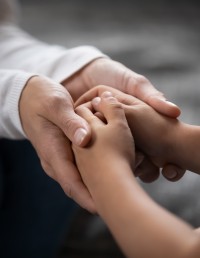9th Circuit Agrees to Hear NCYL’s Appeal in Las Vegas Foster Care Case
The 9th Circuit Court of Appeals has agreed to hear an appeal by the NCYL of a recent U.S. District Court ruling denying its motion for class certification in Clark K. v. Willden. The case, filed by NCYL in August 2006, seeks broad reform of the child welfare system in Clark County (Las Vegas), Nevada.
The 9th Circuit, which made its ruling October 9, has yet to set a date to hear the appeal. If NCYL wins,Clark K. can proceed as a class action on behalf of all children in or at risk of entering the child welfare system in Clark County.
“The Appeals Court decision is a victory for all foster children in Clark County,” said NCYL Senior Attorney Bill Grimm, lead counsel in the case. “We are confident that once the 9th Circuit reviews the evidence, it will agree with us that the problems in Clark County’s child welfare system are pervasive and widespread and put all children in the system at risk.”
NCYL’s petition for review by the 9th Circuit cites overwhelming evidence of the harms and risks suffered by all children in the system, including physical, sexual, and emotional abuse, denial of medical and mental health care, and chronic instability. In the most tragic cases, children have lost their lives while in the care or under the protection of the Clark County Department of Family Services (DFS).
It is a system that Tom Morton, Director of Clark County DFS describes as a “crippled child welfare system,” that has been designated by federal officials as the worst child welfare system in the nation, the petition said.
Specifically, NCYL has learned that:
- Nearly half the children in the child welfare system are not receiving the services they need to meet their physical and mental health needs.
- Nearly half of children who entered foster care between October 1, 2000 and September 30, 2006 were shuttled through three or more placements during their time in foster care.
- Caseworkers are unqualified, untrained and unsupervised, burdened with overwhelming caseloads of 39 cases per worker. The generally accepted professional standard is 15 to 18 cases per worker.
- DFS routinely fails to investigate reports of abuse or neglect. A review of more than 1,300 cases by an outside expert reveals that safety assessments were not completed in almost half of the cases, and investigators determinations as to whether abuse actually occurred were wrong in 66 percent of the cases.
- Foster parents are not adequately trained or supported and often do not have critical information about the children in their homes. In a recent survey of foster parents, more than 40 percent said that caseworkers did not inform them of children’s behavioral needs prior to placement, and about one-third said that they did not receive sufficient information about the child’s medical history or educational needs.
- The vast majority of children in Clark County are not provided with a guardian ad litem or attorney. Of those who are, most do not receive this representation until well after many critical decisions are made about their lives.
Plaintiffs filed their initial motion for class certification in November 2006, three months after filing its original complaint. In May 2007, US District Court Judge Robert C. Jones deferred ruling on their request and ordered further discovery to determine if experiences of named plaintiffs were common and typical among other children in the foster care system. Plaintiffs did further discovery and renewed their motion for class certification in March 2008. Judge Jones denied that motion four months later, on July 14, 2008, ruling that NCYL did not provide sufficient evidence to meet the class certification standard.
In ruling to hear NCYL’s appeal, the 9th Circuit determined that the District Court’s decision was “manifestly erroneous.” The decision was issued by Circuit Judges Kim McLane Wardlaw and William Fletcher.
NCYL’s co-counsel in the case are Farella Braun + Martel of San Francisco, and Wolfenzon Schulman & Ryan of Las Vegas, San Diego, Reno and Phoenix.
For more information please contact:
Bill Grimm, National Center for Youth Law
(510)835-8098, Billgrimm(at)youthlaw.org





